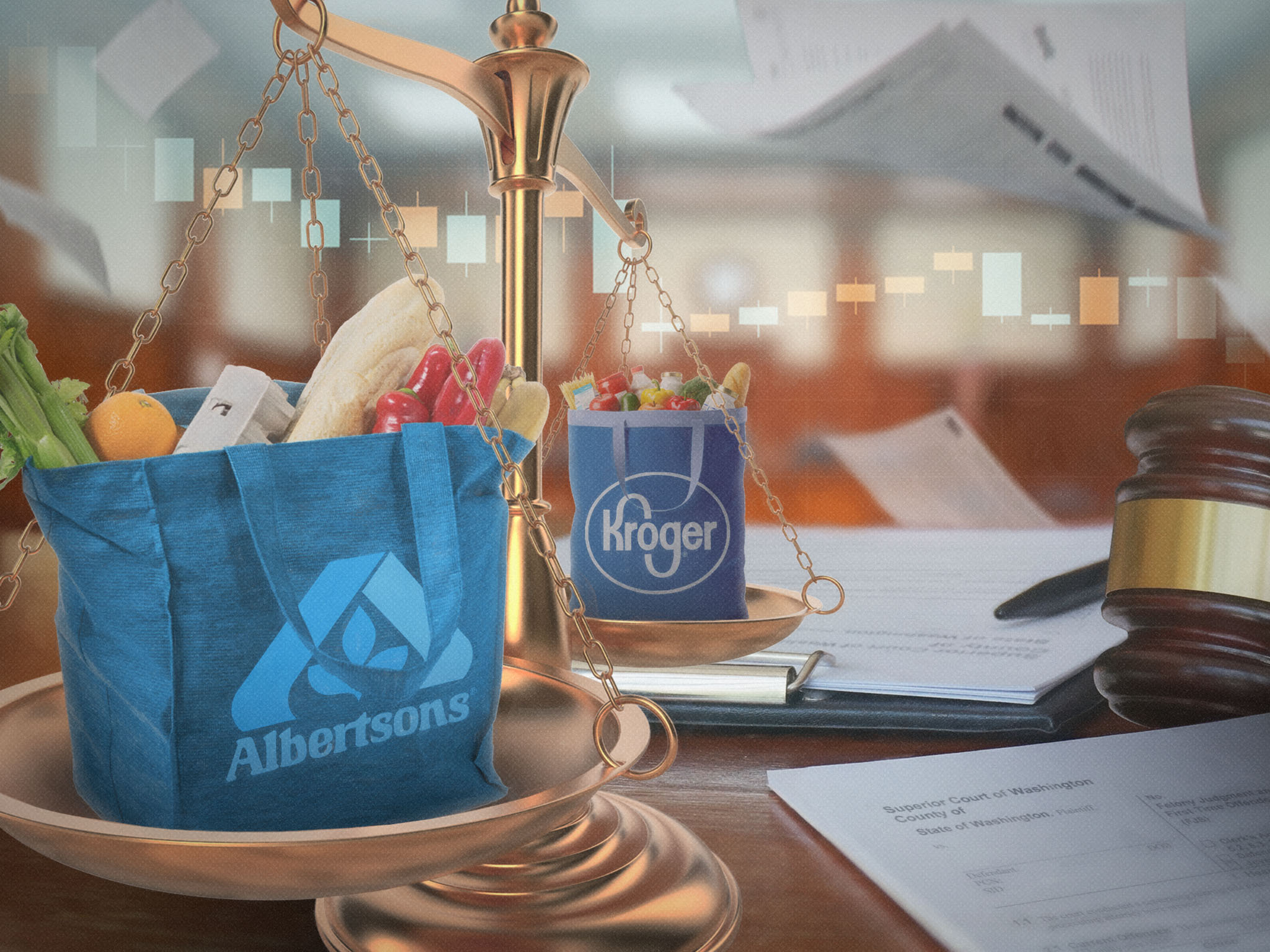After its failed merger attempt with Kroger (NYSE: KR), Albertsons (NYSE: ACI) is cutting costs, closing stores, and pushing back against any tariff-related price increases from suppliers.
But the company’s most promising option is the gain that could come from a $600 million break-up suit against its former would-be partner.
The failed merger of the grocery stores tanked Albertsons stock. One day before the Oct. 14 2022, merger announcement, Albertsons shares closed at $28.63. The $24.6 billion deal priced Albertsons stock at $34.10 per share — a 19% premium to shareholders. Eight days later, Albertsons declared a special cash dividend of $6.85 per share.
Today, Albertsons shares trade at nearly half the proposed merger price, closing on Aug. 12 at $19.03, after fiscal 2024 profit dropped by 26%.
However, Albertsons can make a strong case for itself. The company agreed to let much-larger Kroger lead negotiations over anti-trust concerns about what would have been the biggest supermarket merger in U.S. history. Nearly a year after the announcement, Kroger said it had satisfied Federal Trade Commission concerns about the deal, which would close early in 2024.
Instead, anti-trust suits brought by Colorado and Washington state prompted a federal judge to send the deal back for further review by an FTC judge on Dec. 11, 2024. A Seattle court issued a permanent injunction against the deal just one hour later. At that point, Albertsons pulled the plug and headed to court.
What were they thinking?
A lingering question is how the two grocery chains ever thought the deal would escape antitrust opposition, despite dubious claims that the merger would somehow lower prices for consumers.
For several years, Walmart has led the grocery segment with more than 23% of the market, followed by Kroger with more than 10%, Costco about 9 percent, and Albertsons at about 6.5%. Combining Albertsons and Kroger would have put more than 40% of the country’s grocery sales in the hands of Walmart and a merged Kroger-Albertsons.
Merger issues seemed to distract Albertsons executives, who allowed profits to drop by 26% during the 2024 fiscal year to $959 million. Now it’s rebuilding time, but a big boost could come in the form of the $600 million termination fee Albertsons hopes to gain from Kroger. The company has also been pursuing other legal claims against Kroger, charging that as the lead negotiator with the FTC, Kroger botched the deal.
Albertsons also is suing Kroger for information regarding the post-merger firing of Kroger CEO Rodney McMullen over undisclosed ethics violations. Albertsons wants to know if McMullen’s conduct distracted from or conflicted with his obligations to Kroger during the merger talks. Kroger representatives called the suit a desperate measure to distract from Albertsons’ role in the failure of the merger.
Earnings numbers
First-quarter results from Albertsons showed a 2.5% year-over-year revenue gain, but a gross margin decline of 27.1%.
Meanwhile, despite its legal bills, Kroger announced a 2.2% increase in operating profit for its first quarter from a year earlier, and an increase in gross margin to 23% from 22%. But revenue slipped 0.4% to $45.1 billion. Since the December court rulings against the merger, Kroger shares have steadily climbed, up 14% year to date.
When they’re not arguing in court, managers of both companies are dealing with executive changes, automation, e-commerce initiatives, union contracts, delivery offerings, supplier cost increases, and the other challenges that have kept profit margins in the grocery business razor-thin for years.
One thing they’re not doing, however, is explaining how they ever saw the proposed merger as anything other than doomed.




Comments